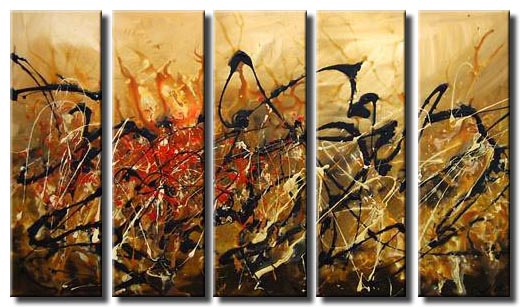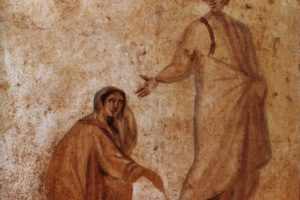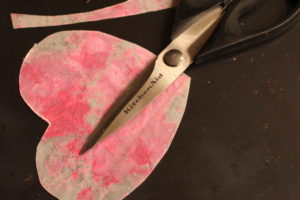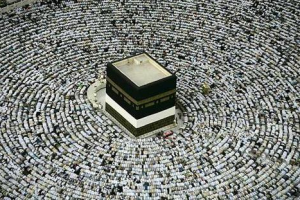It all started with Chaim Potok—the 20th century Jewish novelist who wrote mainly about Orthodox and Hasidic Jews living in New York City, and is famous for such books as The Chosen and My Name is Asher Lev. I discovered his novels in college, and, after reading a few of them, I came to a very startling realization: I wanted to be Jewish. This new dream elicited much confusion and consternation from those with whom I shared it. After all, I suppose it’s not the average Christian girl’s inner longing to be an Orthodox Jew. First my mother and then later my husband, would tell me matter-of-factly that I already was a Jew, grafted onto the tree of Abraham, per Romans 11.
I knew that at some level—probably the deepest and most important level—that was true, but it didn’t bring me much consolation, I would explain, because what I really wanted wasn’t an abstract identity, but something that I could touch: I wanted Shabaat meals by candlelight, and long, restful Sabaath days; I wanted mezuzahs and prayer shawls, feasting and fasting; I wanted to dance with the scrolls on Simchat Torah, and eat the bitter herbs of Egypt on Passover.
And of course, what I was really saying was that I wanted a faith that gave rhythm to my days, weeks, and years; I wanted tradition; I wanted to be part of something bigger than myself that shaped the way I lived; I wanted to be sunk like an anchor into a story that connected me with the beginning and end of all things, a story that explained the world to me, and gave me an identity within it.
What I didn’t want was tradition for tradition’s sake alone. I wanted tradition because of its proven power to shape a people, to form them in faith, to help them hold to their beliefs and experience God in a tangible way. And I wanted candles, and matzo and teffilin and songs of deliverance because as a soul and a body, that is, as a whole person, I wanted to be part of a faith that touched all my senses and did not exist in a solely spiritual arena, a physical vacuum. I wanted a faith that touched the ground, and forged the spiritual and physical into a vibrant, meaningful intersection.
So you can imagine how excited I was to find out—as I read, learned, travelled, joined an Anglican church, researched, and talked to people—that Christians have the Church year—a calendar full of feasts and fasts,and holy days, practices and traditions, rich with history and meaning, and constantly there to draw us into experiencing the faith as whole people with minds and hearts and bodies. Growing up, I got bits and pieces of the church year: Christmas and Easter, something about giving up stuff for Lent and St. Valentine being a martyr, but I didn’t realize that these were parts of a whole. And I didn’t realize that the Church year was one of the best tools we had as Christians to lead our hearts regularly back to God and his goodness.
As exciting as it’s been to stumble upon 2,000 years of Christian tradition and realize that I can be part of it, it’s also a bit overwhelming. I actually don’t know how to observe Advent beyond lighting a candle in church each Sunday. I don’t know what to do with the twelve days of Christmas that the Church calendar calls for. I’m still fuzzy on what Epiphany is, much less how to celebrate it. Which is why I am so thankful for the new series by Doulos Resources entitled Let Us Keep the Feast: Living the Church Year at Home. I just finished reading the Advent & Christmas edition, and for the first time I feel prepared to actually “keep the feast” in my home and with my family. The book is short, accessible, informative, and practical. It not only helped me understand how to celebrate Advent (as just one example), but why we celebrate it. It shares history, traditions, ideas, and resources for further learning without ever putting any pressure on you to observe the Church year perfectly. It is an invitation, not a requirement. And if nothing else, it is worth reading just for the excellent introduction by Jessica Snell in which she explains the value and beauty of the Church year far better than I ever could.
Advent is the beginning of the Christian calendar, the start of the Church year—and Advent starts this Sunday—so it’s the perfect time to check out this little book and dive a bit deeper into the rich tradition of which we are so wondrously a part.






4 Comments
Leave your reply.